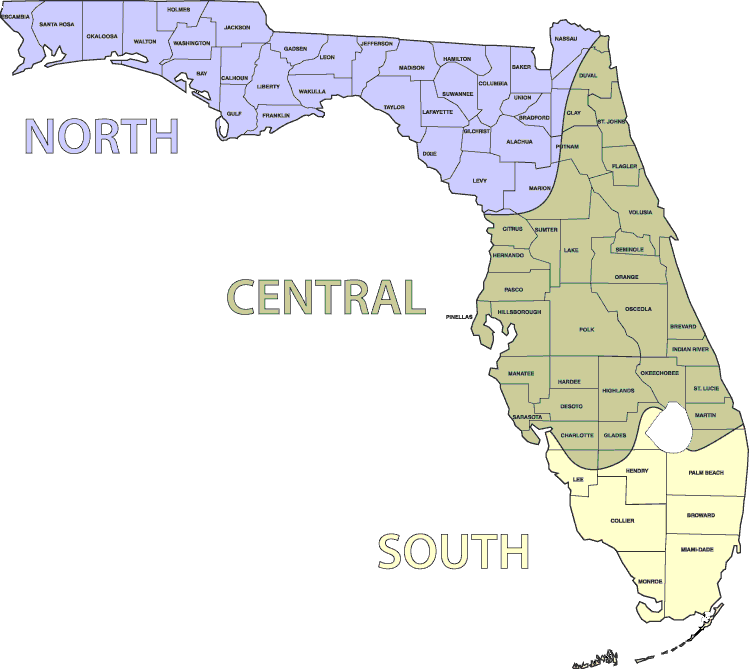Eggplant Varieties for Florida
Eggplants, with their glossy, deep purple fruits and striking green foliage, bring a touch of exotic beauty to any garden. These plants are known for their vibrant and uniquely shaped fruits, which can vary from the traditional teardrop form to slender, elongated varieties. Their large, slightly spiny leaves and delicate purple flowers add to the overall allure, making eggplants a captivating addition to garden beds or containers.
In Florida planting zone 9, eggplants thrive in the warm climate, producing an abundant harvest throughout the growing season. The fruits develop into rich, dark purple hues that stand out against the green backdrop of the leaves. Watching these striking fruits grow and mature is a delightful experience, marking the success of your gardening efforts.
For those new to gardening, eggplants are a rewarding choice. They are relatively easy to grow and offer a versatile ingredient for the kitchen. Whether you enjoy them grilled, roasted, or in a variety of dishes, eggplants bring a delicious and nutritious addition to your meals, making your gardening endeavors both enjoyable and fruitful.
I would give eggplants a 4 out of 5 on how easy they are to grow. They are relatively straightforward to cultivate, making them suitable for both beginners and experienced gardeners.
Black Beauty
Heirloom

Description: Black Beauty is a classic eggplant variety known for its large, glossy, deep purple fruits and rich flavor. It produces high yields and is a popular choice for home gardens.
Growing Season: Spring, Summer, and Fall
USDA Planting Zone: 4-10
Special Notes: Heat-tolerant and performs well in warm climates. Ideal for grilling, roasting, and making eggplant dishes like ratatouille and eggplant Parmesan.
Ichiban
Hybrid

Description: Ichiban is a Japanese eggplant variety that produces long, slender, dark purple fruits. It has a tender texture and mild, sweet flavor.
Growing Season: Spring, Summer, and Fall
USDA Planting Zone: 4-10
Special Notes: Fast-maturing and highly productive. Perfect for stir-fries, grilling, and Asian cuisine.
Fairy Tale
Hybrid

Description: Fairy Tale is a compact, dwarf variety that produces small, elongated, lavender fruits with white stripes. The fruits are sweet and tender.
Growing Season: Spring, Summer, and Fall
USDA Planting Zone: 4-10
Special Notes: Ideal for container gardening and small spaces. Great for grilling, roasting, and pickling.
Rosa Bianca
Heirloom

Description: Rosa Bianca is an Italian heirloom variety known for its beautiful, round, lavender fruits with white streaks. It has a creamy texture and mild flavor.
Growing Season: Spring, Summer, and Fall
USDA Planting Zone: 5-10
Special Notes: Less bitter than other varieties. Excellent for grilling, roasting, and baking.
Ping-Tung Long
Heirloom

Description: Ping-Tung Long is a Taiwanese eggplant variety that produces long, slender, dark purple fruits. It has a mild flavor and tender texture.
Growing Season: Spring, Summer, and Fall
USDA Planting Zone: 4-10
Special Notes: Highly resistant to disease and heat. Ideal for stir-fries, grilling, and Asian dishes.
Florida Vegetable Planting Guide
This guide provides information on when to start seeds inside, direct seed, and transplant starter plants in the different regions of Florida.
North USDA Planting Zones: 8b-9a
Central USDA Planting Zones: 9b & some of 10a
South USDA Planting Zones: 10a-11b
Visit the U.S. National Arboretum for an Exact USDA Planting Zone Map.

| Eggplant | North Florida | Central Florida | South Florida |
|---|---|---|---|
| Start Seeds Inside | Dec-Jan/Jun-Jul | Nov-Dec/Jun-July | Jun-Dec |
| Direct Seed | Not recommended | Not recommended | Not recommended |
| Transplant Starter Plants | Feb-Apr/Aug-Sep | Jan-Mar/Aug-Sep | Aug-Feb |
Explanation:
Start Seeds Inside: Starting eggplant seeds indoors in the early part of the year allows for a controlled environment, promoting strong and healthy seedlings before transplanting.
Direct Seed: Direct seeding is not recommended for eggplant due to its long growing season and the need for consistent warm temperatures for successful germination and growth.
Transplant Starter Plants: Transplanting eggplant starter plants provides a head start in the garden, allowing them to establish well during the warmer months and ensuring a longer growing period.
Requires warm soil and weather. Harvest into summer. May need staking. Bitter fruit caused by high temperatures or drought conditions.
________________________________________________________________________________________________________________________
Soil: Eggplants prefer well-drained, fertile soil with a pH between 6.0 and 7.0. Amend the soil with compost or well-rotted manure to improve fertility and structure.
Sun: Full sun is essential for optimal growth and fruit production. Ensure eggplants receive at least 6-8 hours of sunlight daily.
Watering: Keep the soil consistently moist but not waterlogged. Mulching helps retain soil moisture and regulate temperature.
Spacing: Plant eggplant seedlings 18-40 inches apart in rows & space rows 36 inches apart to allow adequate air circulation and room for growth.
Fertilization:
N-P-K Ratio: Eggplants benefit from a balanced fertilizer with a slightly higher phosphorus content to support both root development and fruit production, such as 5-10-10 or 10-20-10.When to Add:
Before Planting: Apply the fertilizer to the soil before planting seeds or transplants to promote strong initial growth and root development.
Mid-Growing Season: Reapply the fertilizer every 4-6 weeks during the growing season to support continued growth and fruit production.
Application Tips:
Follow the directions on the fertilizer package to avoid over-fertilization.
Apply the fertilizer evenly around the base of the plants and water thoroughly to help the nutrients reach the roots.
Additional Tips:
Eggplants grow best in well-drained soil rich in organic matter, so consider adding compost to improve soil fertility and structure.
Mulch around the plants to help retain moisture, suppress weeds, and regulate soil temperature.
Ensure that eggplants receive consistent moisture, especially during flowering and fruiting, to prevent stress and promote even growth.
Blog post on Natural Fertilizers
Support: Stake taller varieties to support the plants and keep the fruit off the ground. This helps prevent disease and promotes healthy growth.
Harvest: Eggplants are ready to harvest when the fruits are glossy and reach about 6-8 inches in length, typically 70-115 days after planting. The skin should be firm and slightly give under pressure. Cut the fruit off the plant with a sharp knife, leaving a short stem attached.
By selecting the right eggplant varieties and following these growing tips, you can achieve a successful and bountiful eggplant harvest in your Florida garden.
Pests and Diseases that affect Eggplants in Florida:
Aphids: Small insects that suck sap from the leaves and stems, causing curling and yellowing.
Flea Beetles: Small beetles that chew small holes in the leaves.
Spider Mites: Tiny mites that cause stippling and yellowing of the leaves.
Whiteflies: Tiny white insects that feed on the undersides of leaves, causing yellowing and wilting.
Natural Pest Control
Verticillium Wilt: A fungal disease that causes yellowing and wilting of leaves, leading to plant death.
Powdery Mildew: A fungal disease that causes a white, powdery coating on the leaves.
Companion Plants
Marigold
Description: Marigolds are bright, sunny flowers that come in a variety of colors including yellow, orange, and red.
Growing Season: Spring through fall
USDA Planting Zone: 2-11
Special Notes: Marigolds release chemicals in the soil that deter nematodes and other soil-borne pests.
How it Helps: Marigolds help repel aphids, spider mites, and whiteflies. Their roots release a substance that helps prevent root-knot nematodes, protecting eggplant roots.
Basil
Description: Basil is a fragrant herb with bright green leaves and a sweet, slightly peppery flavor.
Growing Season: Spring through summer
USDA Planting Zone: 4-10
Special Notes: Prefers full sun and regular watering.
How it Helps: Basil helps repel aphids, whiteflies, and spider mites with its strong aroma. It also attracts beneficial insects like bees that help with pollination.
Thyme
Description: Thyme is a low-growing perennial herb with small, aromatic leaves and purple or pink flowers.
Growing Season: Spring to fall
USDA Planting Zone: 5-9
Special Notes: Thyme prefers full sun and well-drained soil.
How it Helps: Thyme helps repel flea beetles and other pests with its strong aroma. It also attracts beneficial insects that prey on pests affecting eggplants.
Nasturtium
Description: Nasturtiums are flowering plants with round leaves and vibrant flowers in shades of yellow, orange, and red.
Growing Season: Spring to fall
USDA Planting Zone: 4-9
Special Notes: Known for their ability to trap pests and attract beneficial insects.
How it Helps: Nasturtiums act as a trap crop, luring aphids and flea beetles away from eggplants. Their flowers also attract beneficial insects that prey on these pests.
Oregano
Description: Oregano is a perennial herb with small, aromatic leaves and a pungent flavor.
Growing Season: Spring to fall
USDA Planting Zone: 4-10
Special Notes: Prefers full sun and well-drained soil.
How it Helps: Oregano’s strong scent helps repel aphids and spider mites. It also serves as ground cover, helping to suppress weeds and retain soil moisture for eggplants.
These companion plants help protect eggplants from pests and diseases while also enhancing the overall health and productivity of the garden.
For eggplant, here are the vegetable plants that should not be planted nearby:
Fennel - Can inhibit the growth of eggplant.
Corn - Competes for nutrients and can attract pests that affect eggplant.
Kohlrabi - Can stunt the growth of eggplant.
Tomatoes - Compete for nutrients and can attract similar pests and diseases, increasing the risk of spreading issues.
